次要博客: 保持我的中文水平,主要写日记,转发帖子。 主要博客的网页地址: www.tumblr.com/snowv88
Don't wanna be here? Send us removal request.
Text





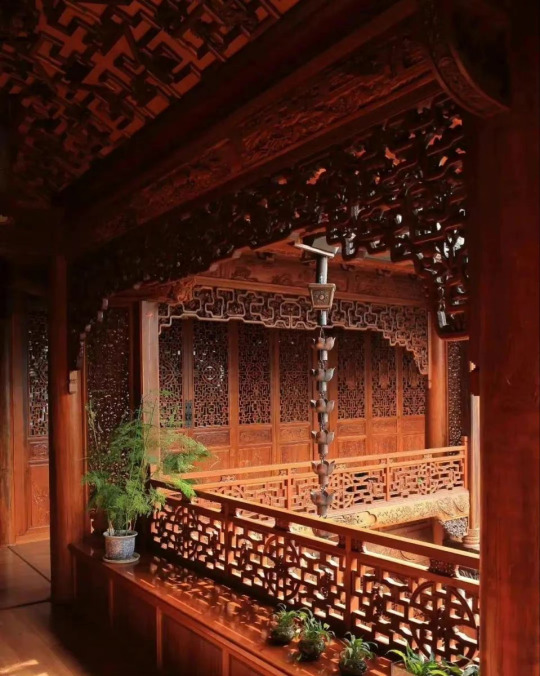
🪴 Siheyuan | 四合院 🪴
Is a historical type of courtyard residence that is commonly found across China. Designs differ in every region. For example, in the northwest where dust storms are strong, the walls tend to be higher. In the South the houses are built with multiple stories. In the northeast the weather is cold so courtyards are broad and large to increase the exposure to sunlight, and there are more open rooms inside the walls.
598 notes
·
View notes
Text
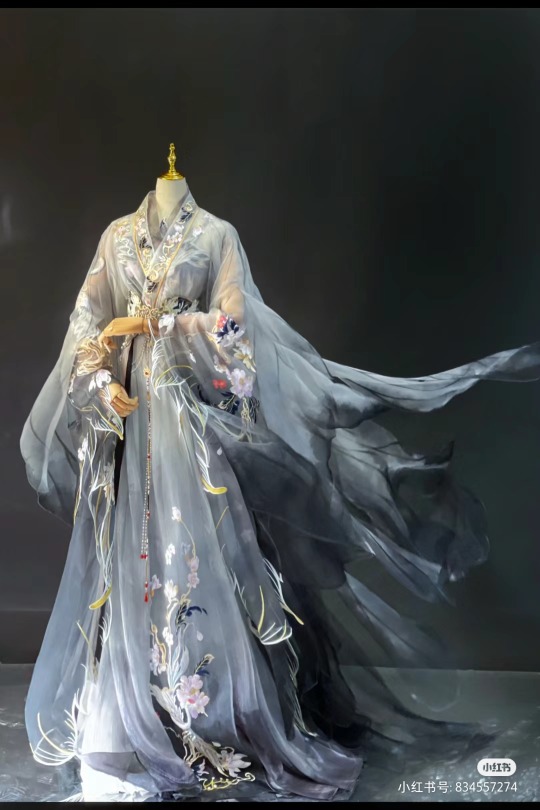
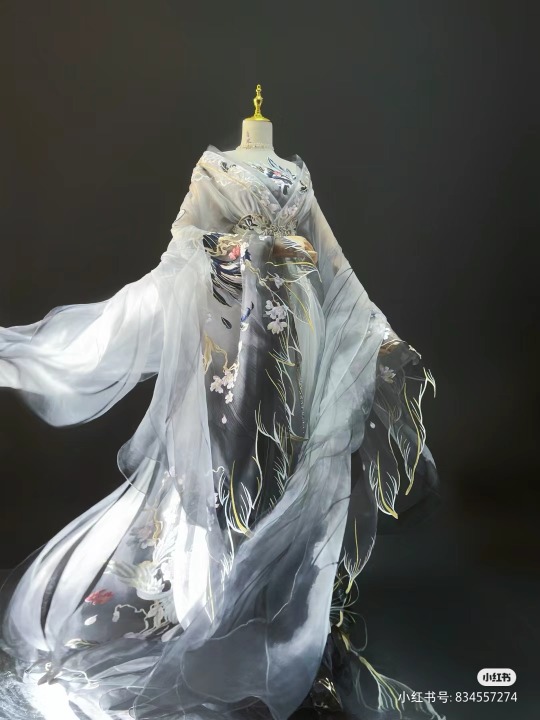

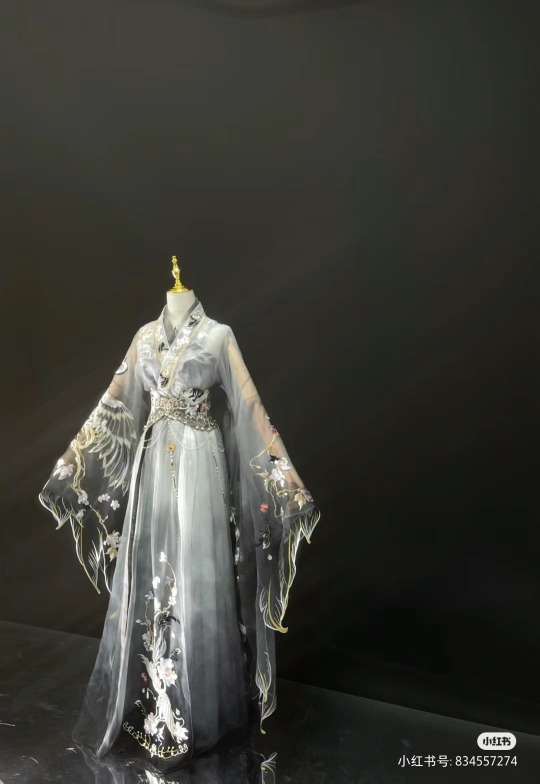
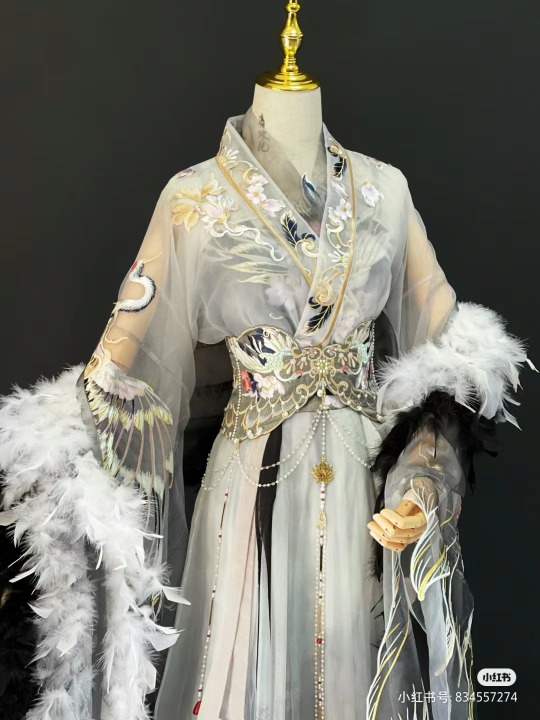
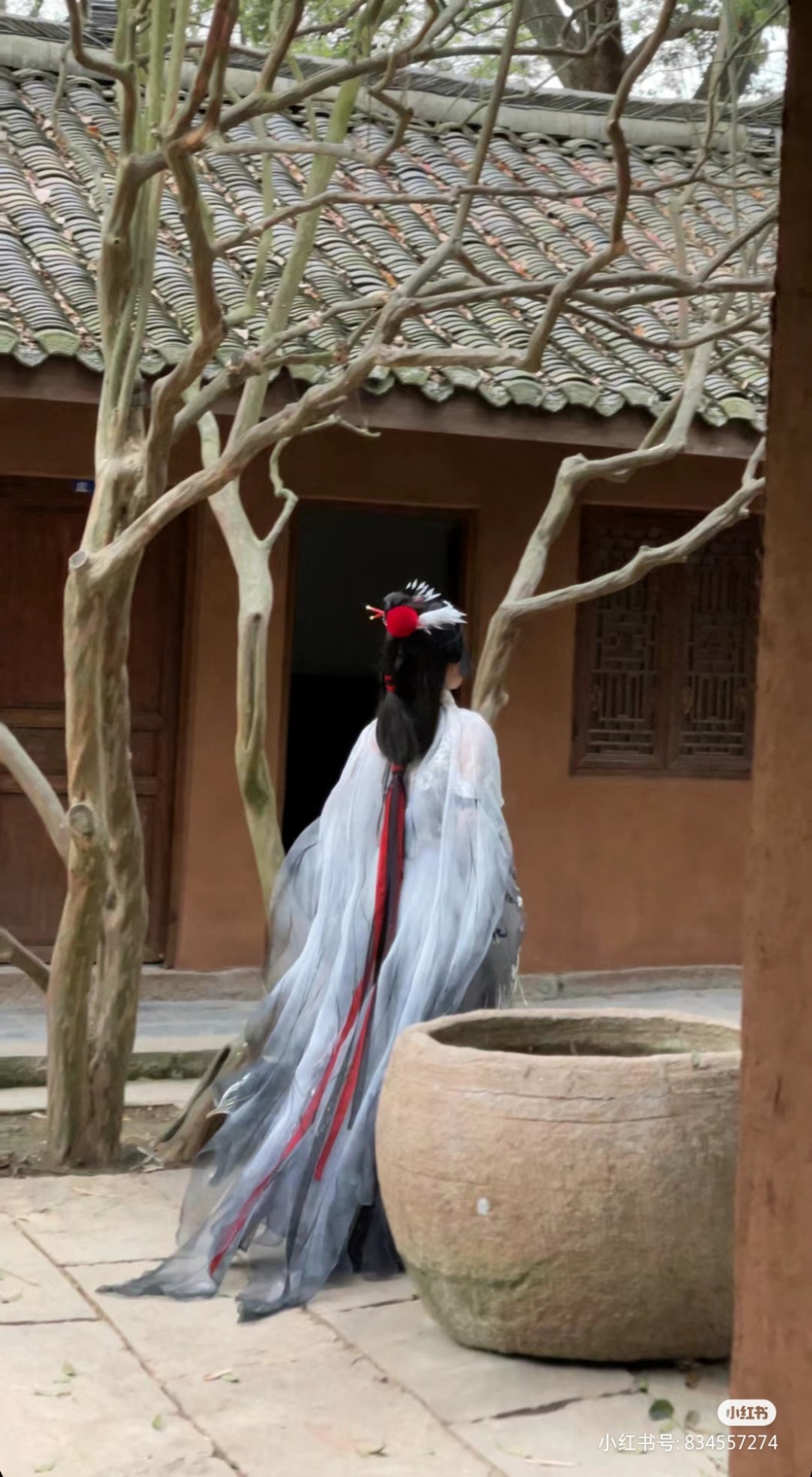
chinese hanfu (xianhe仙鹤, immortal crane)
1K notes
·
View notes
Text
[Hanfu · 漢服]Chinese Tang Dynasty(618-907A.D)Woman Officer Hanfu Refer to Tang Dynasty Stone Coffin Line Carving

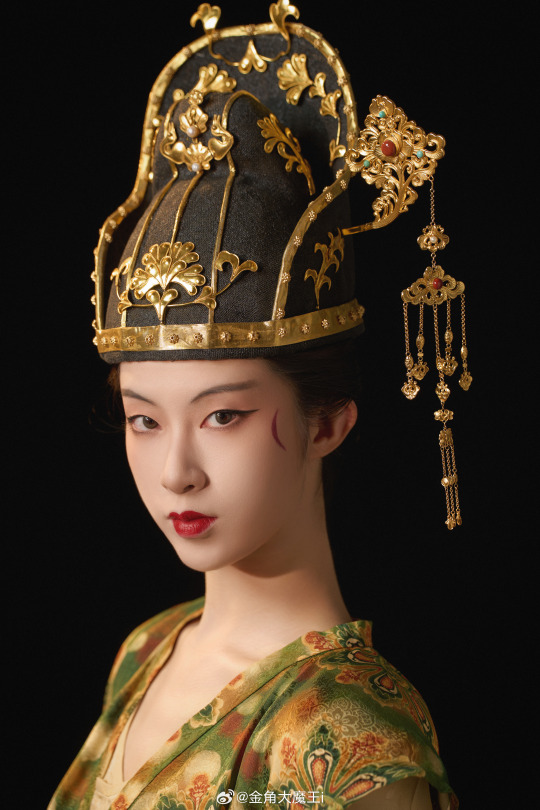

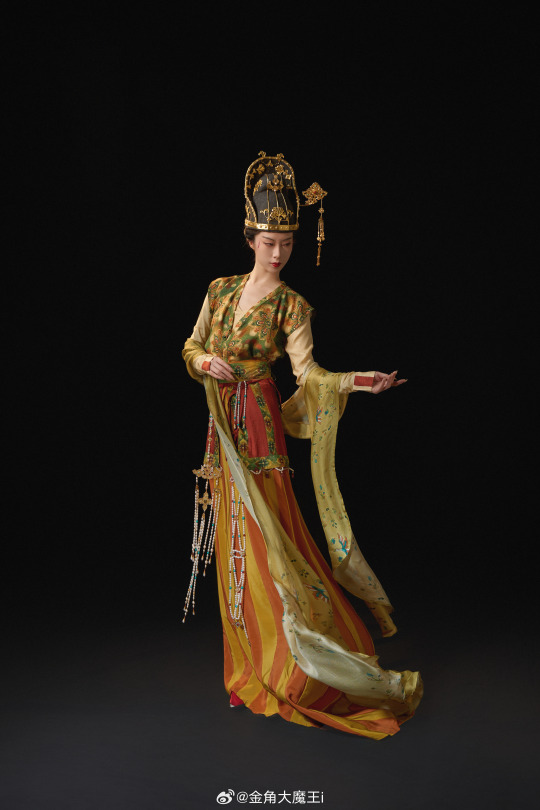
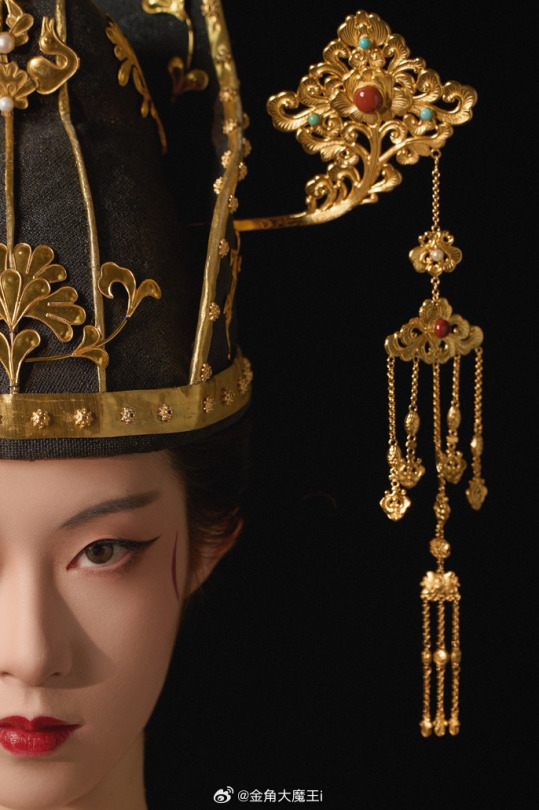
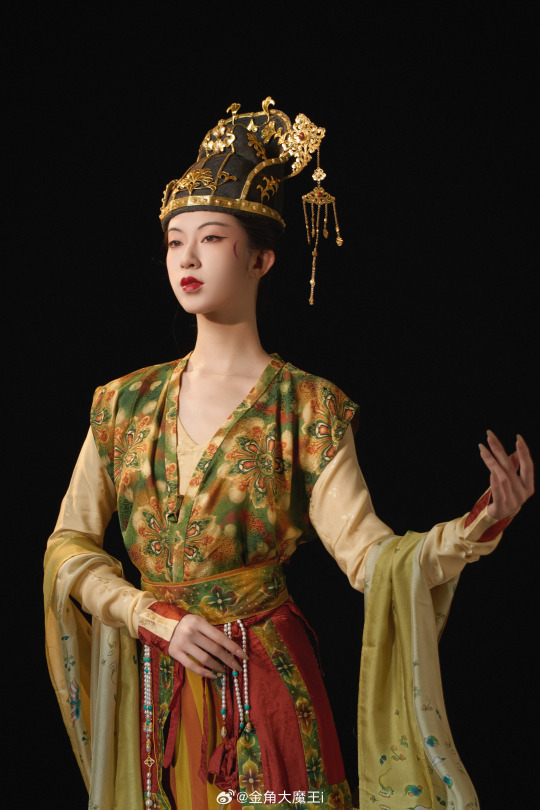

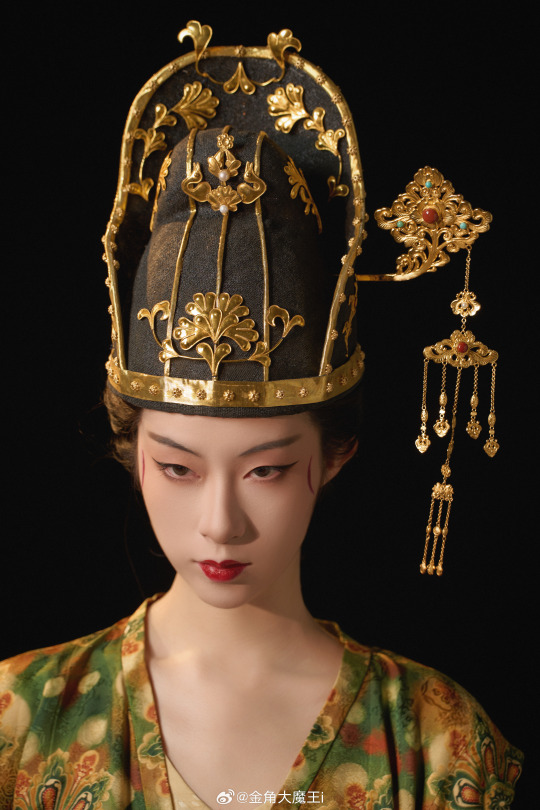
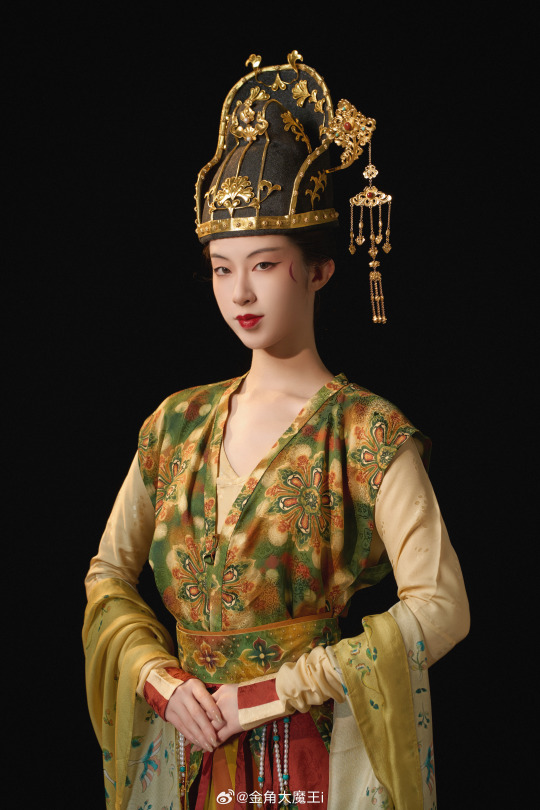
【Historical Artifacts Reference 】:
China Tang Dynasty Tomb of Wei Shiqiniang's Stone Coffin Line Carving/韦十七娘石椁线刻
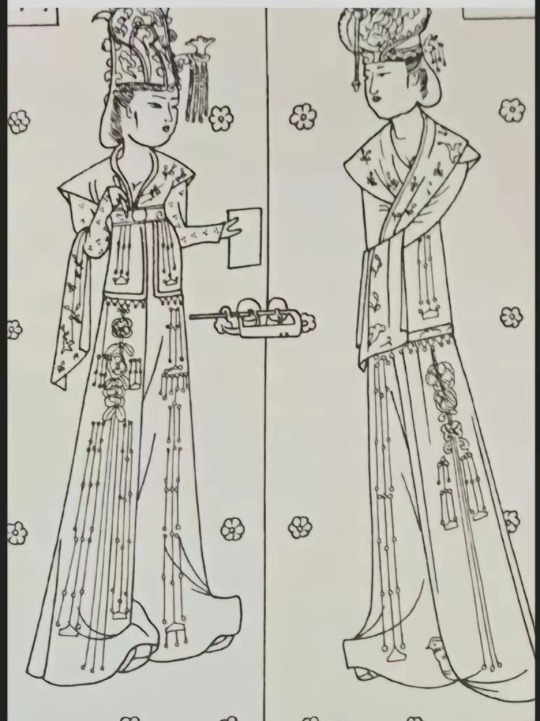
Showing Tang Dynasty Woman Officer In WuZetian (690–705)period
武周女官
————————
📸Recreation Work: @金角大魔王i
👗Hanfu: @山涧服饰
🔗Weibo:https://weibo.com/1763668330/NDuAoFtZz
————————
#金��大魔王#hanfu#tang dynasty#I work in the government and I wish i could dress this nice 🥺#the hat too!#Tang Dynasty(618-907A.D)
363 notes
·
View notes
Text





makeup and hair style for chinese hanfu by 平平无奇的罗浮浮
365 notes
·
View notes
Text

"Stevan Harrell's ambitious An Ecological History of Modern China embodies the best of his trademark scholarship. The book displays a tour de force of deep knowledge of China, a wry sense of self-deprecating humor, and an insightful ability to use a few core concepts—disturbance and resilience; ecological, infrastructural, institutional and cultural buffers; and eco-developmentalism���to draw a balanced but 'jury is still out' portrait of a China that might, or might not, overcome its environmental crises."
11 notes
·
View notes
Text
我不知道应该转发在拿破仑时代博客上还是学习中文博客上所以...我在两个博客转发 😂
滑铁卢战役非常有名,名字变成了一个中文谚语 I don't know whether to post this on my main blog or on my side blog so I guess I'll do both lol.
When a battle is so famous that it becomes a saying in another language 😂

This week I learned that Napoleon’s defeat at the Battle of Waterloo is the source of the Chinese expression 滑铁卢 | 滑鐵盧 huátiělú. It’s a transliteration of Waterloo, but it can refer more generally to a defeat or failure.
Ex: 他这次考试又惨遭滑铁卢。 On this test he suffered a Waterloo again. (AKA he failed miserably.)
Via Baidu Baike: 是出自滑铁卢战役,在这场战役中,反法联军获得了决定性胜利,拿破仑失败了,所以滑铁卢代表失败。 Comes from the Battle of Waterloo. In this battle, the anti-French allied forces won a decisive victory, and Napoleon was defeated, so huátiělú represents failure/defeat.
#滑铁卢#waterloo#battle of waterloo#napoleon bonaparte#napoleonic era#history#chinese language#learning chinese
120 notes
·
View notes
Text
随感 #12 (Random Thoughts #12)
好像在我的地方有两部中国电影正在上映:《封神第一部:朝歌风云》 和 《孤注一掷》。我一个朋友说只有后者电影很好看,另外一个朋友说这两部电影都很没错,不过如果我要看前者电影的话,最好先熟悉了中华神话。无论如何,我的小镇电影院不上映这两部电影,我必须去大城市来看看,是开一个小时的车(或者做火车)。我就想一想很值得看这两部电影?我得花一个小时去大城市,两三个小时看电影,最后再一个小时回家。不,我会等待电影在流媒体上。
Right now, there are two movies in theatres in the area I live: "Creation of Gods" and "No More Bets". One of my Chinese friends said that it's better to see the latter while another friend said that both movies are not bad, although if I wanted to see the former, I have to at least be familiar with Chinese mythology. In any case, the little town I'm in doesn't show either movie so I have to go to the bigger city to watch it which is an hour by car (similar time by train). I only wonder if it's worth it because I am spending one hour to go there, two to three hours to see the movie and another hour to go home. Nope, I will wait until they are on streaming sites.
2 notes
·
View notes
Text
随感 #11 (Random Thoughts #11)
今天我和我的中文伙伴讨论人工智能,上周我们讨论MBTI,我们的话题最近挺复杂。��我来说,我应该说到这样的话题,因为我已经达到了比较高级的水平。但是这些话题确实很难讨论,是一个挑战。我的中文伙伴也感觉有点难,因为她跟我一样所以她也必须使用许多的生词。有时候我感觉我的进度非常慢,因为这些挑战让我真的想,“天啊!我的华语烂极了!”,但我应该坚持谈论这种的话题,因为至少我可以用我最近学到的HSK生词 😂
Today I spoke to my Chinese langauge exchange partner about AI and last week we spoke about MBTI. Our topics have become more and more complex and I do think this is a good thing for me since I've already achieved a certain level. However, these topics are really difficult to talk about in our respective languages because we use a lot of new words. There are times where I feel that my progress to a more advanced level of Chinese is quite slow as I sometimes feel that my Chinese is beyond terrible but I am to persevere and continue, as hey, at least I can use the words I've learnt studying for HSK5 😆
13 notes
·
View notes
Text

My notes from the last lesson on level 5 of Super Chinese.
Each lesson takes me on average a week to finish.
(some of the vocabulary on the page on the right is vocabulary I'd learned previously but didn't remember; the example sentences are from this lesson)
Level 6 is still HSK4 by the way.
19 notes
·
View notes
Text


Wishing for jails overgrown with grass, Suzhou 苏州, China
@clara_ontheroad on Instagram
21 notes
·
View notes
Text
随感 # 10 (Random Thoughts 10)
很久没写帖子。实际上,我不知道我该写什么,我最近没有那么有意思的事情要分享。嗯。。。我可以说,一边工作一边学习有点累,特别我现在全职工作,周末到了的时候我不要复习词汇语法。我必须坚持坚持,要不我全部都会忘记了。加油我!
It's been a while since I've posted something and to be honest, I don't have anything interesting to write but...I guess studying and working at the same time is hard. Especially since I work full time so when the weekend comes, I don't want to do anything. I have to persevere or I'll forget everything so best of luck to me, I suppose.
#chinese language#mandarin chinese#langblr#language learning#what do I even say?#I have nothing good to write at the moment#随感#random thoughts
7 notes
·
View notes
Video
1994年的三国演义电视剧是差点完美 😊 推荐你们看看
youtube
Chinese Hats and Headwear in the Three Kingdoms 1994 and its history
One of our contributors @csarracenian has subtitled another educational video about the history of various hats and headwear in the 1994 Romance of the Three Kingdoms, explaining their history and meaning and showcasing the high research quality of the show.
Video is made by 是椰果啊 on bilibili & released with their permission.
#three kingdoms#chinese drama#dynasty warriors#chinese history#hanfu#historical#romance of the three kingdoms 1994#period drama#汉服#rotk#ancient china#hats
151 notes
·
View notes
Text
I am learning both languages simultaneously and here's my take.
The short answer: No, a Chinese speaker won't be able to read Japanese texts and vice versa with Japanese speakers and Chinese texts.
The long answer: According to my Chinese friends, when they travel to Japan, they can vaguely guess what is being conveyed through the Kanji used.
At times, the Kanji meaning actually matches the meaning of characters used in modern Chinese
CN: 注意 (zhù yì*) => v. to pay attention (on something/someone)
JP: 注意 (ちゅうい = chuui) => n. attention
You can see that the pronunciation is pretty similar but the usage is different. For the Japanese one, unless you add a する part to the back to make it a verb (注意する) it is a noun. However, just based on looking at the two characters, a Chinese speaker would be able to guess the meaning.
Now, take a look at these two characters.
CN: 勉强/強 (miǎn qiǎng*) => v./adj./adv. to do something begrudgingly/with difficulty
JP: 勉強 (benkyou) => n. study
You can see that despite having the same characters, the meaning is completely different. This is one of those cases that context will not be enough to guess what that characters are trying to convey.
Now, how much can Chinese speakers understand Japanese writing and vice versa? That's something you may have to consult a linguist because I can't say for sure. However, my guess is that Chinese speakers can understand very little of Japanese text (maybe less that 40% of text) because of the hiragana and katakana used. Japanese speakers though may have it easier since they know Kanji but they will have to do a lot of guessing based on context.
This is just my guesswork on the differences in these two languages and I am by no means an expert but I hope I can help get you started in understanding them.
*I'm using Hanyu Pinyin which is a phonetic system originally devised to help people who know languages based on the Latin alphabet learn Chinese. Nowadays, young Mainland Chinese folks learn Pinyin and use Pinyin on their keyboards. Those in Taiwan, though, use Zhuyin which is a different phonetic system that doesn't use the Latin alphabet at all.
Question regarding mutual intelligibility in writing: Japanese and Chinese
Hello hello! For a thing I’m writing, I have a question for speakers/readers of Chinese and Japanese, which I hope someone will be able to answer.
I know that Japanese kanji, for the most part, have the same or similar meanings to the same characters used to write in Chinese. Is there much, if any, mutual intelligibility in reading them? If I have a character who is a native Japanese speaker/reader, would they be able to, say, read internet forums in Chinese and understand them, even though they don’t speak the Chinese language themself? I mean obviously they would pronounce the characters the Japanese way, but would they be able to understand the meaning? I’m curious, because I know Japanese tends to mix in hiragana and katakana with kanji instead of strictly using kanji, while (I think?) Chinese just uses the character system and doesn’t have a phonetic alphabet. (If I’m wrong please tell me! I studied Japanese for a few years in high school over a decade ago, and I don’t really know much about Chinese language and writing.)
I’d greatly appreciate it if anyone has an answer! I’m a native English speaker/reader, and I don’t know very much about character based writing systems as opposed to phonetic writing systems, so while this seems theoretically like something that could be possible to me, it it’s not, I’d like to know before I include it in my writing and make a fool of myself!
101 notes
·
View notes
Text
the chinese "i love you"
So it feels like people never say "I love you" in chinese. 我爱你.
Since old poetry in the Warring States era and such, people have been using more metaphorical or discreet ways to express affection, for instance "I'm thinking of you" or "I miss you" (eg. the character 思 sī), instead of "love". They consider these less literal means more literary and beautiful.
The two classical poems that immediately come to mind would be thus:
山有木兮木有枝,心悦君兮君不知。——〈越人歌〉 rough translation: the hills have trees and the trees have branches; I love you but you do not know.
and the other:
彼采葛兮,一日不见,如三月兮。——〈王风·采葛〉 rough translation: the girl picking the arrowroot, I haven't seen her for one day, and it feels I haven't met her for three months.
The poem then progresses to two more stanzas of the similar structure, from three months to three seasons (nine months) and to three years.
"Love" may be used as a more abstract idea, or in philosphical contexts, say confucianism and mohism, to mean compassion and charity, loving everyone, loving regardless something something, etc.
But in all honesty people are just more timid. And culturally speaking, I might put 喜欢 (xǐ huān) on a spectrum between "love" and "like", it already carries that meaning of love, if just not as heavy.
As such, in novels set in older eras they may prefer terms like "心悅/傾慕" (xīn yuè / qīng mù) to mean I like you, and in modern ones they like using 喜欢, also meaning "like", as shyer ways of expressing love.
And so it's usually in the traumatic breakdowns and emotionally charging scenes in the depths of the night that they actually use the phrase "I love you".
106 notes
·
View notes
Text
诗歌 星期日#14
《朋友》 by 林青
朋友,是一盏明灯 照亮你前行的路 它不曾嫌弃你的懒惰 不曾离弃你的孤独 它只愿为你燃起生命的火花
每个星期天,我都在我的博客上分享一首中国诗。
4 notes
·
View notes
Text
My latest obsession: The XX子 pattern
So what is XX子? Well I made that term up because I didn't know what else to use. As for what it means, Chinese has many nouns that end in 子, so they are of the form X子. Sometimes the character X can also be a verb. So in some cases, you can actually say you Xed an X子, and it will make perfect sense!
种种子 zhòng zhǒngzi 种 zhòng - to plant / to grow / to cultivate 种子 zhǒngzi - seed
扇扇子 shān shànzi 扇 shān - to fan 扇子 shànzi - fan
盖(上)盖子 gài gàizi 盖 gài - to cover 盖子 gàizi - cover / lid
扣(上)扣子 kòu kòuzi 扣 kòu - to fasten / to button 扣子 kòuzi - button
包包子 bāo bāozi 包 bāo - to wrap 包子 bāozi - bun / bao
钉钉子 dìng dīngzi 钉 dìng - to nail / to pin 钉子 dīngzi - nail
辫辫子 biàn biànzi 辫 biàn - to plait / to braid 辫子 biànzi - plait / braid / pigtail
As you can see, sometimes the tone of character X is different...but I feel like that could be a whole other post. I'm "collecting" more of these, so if you can think of any, let me know! I looked for a list online but couldn't find anything.
377 notes
·
View notes
Text
City C, University P -- the way modern chinese names places
Alright, you may have come across such initial-based namings in books, danmei and other cnovels: City S, University P, C市 (City C), S大 (University S)
-- is it lazy translation? why aren't they giving places actual names?
A tad bit of informal history below:
When did it start?
As a person very much inexperienced in chinese historical literature, I couldn't say for sure either. But what I do know, is that it has been in writing since the 20th century (around the 1920s and after). You see renowned writers of that time like Lu Xun 鲁迅 and Zhu Ziqing 朱自清 using these initials.
(I don't have concrete examples in mind, so I'm flipping about what I have around me, and Zhu Ziqing and Lu Xun's books happen to be near me so -- let me use their works as examples of the day.)
There's this novella Lu Xun wrote, with a protagonist which he named 阿Q (read as "Ah-Q"). I also see in his short stories that he named a dog S, a side character 小D (Little D), and a city S城 (City S).
Zhu Ziqing tends to write more about realistic things that happen in his life in the form of short writings, and for that reason he uses initials way less. He did refer to a person by "Y" in one of the pieces though.
So what are they doing?
So around that time of Lu Xun (we're in the republican era) there's a movement called the May Fourth Movement, and out of the movement it spurred in the literary realm the New Culture Movement. I honestly don't want to go into the details and confuse everyone with my inexperience here, what is worth noting is that they began promoting "modern chinese" (白话 bái huà) over "classical chinese" (文言 wén yán). "Modern chinese" is the kind of chinese you read in cnovels and everywhere else nowadays.
And in this movement, they also advocated quite a lot of western ideas. This is where they proposed a complete romanisation of chinese characters, and probably to do with this, in their new modern chinese writings, they started using anglicised phrases like "City Y" and "Dog S".
All movements are controversial, their failure or success is controversial, I really don't want to get into past history so let's move on.
What they use now.
When journalling one's own experiences, important places and all that, obviously real places and names are used. Otherwise, in fiction, alphabetic initials are used in place, likely to 1. distance fiction from real life, and also I suppose nowadays 2. to avoid heated topics. For instance china may be referred to as 华国 (Huá guó), which probably makes things less sensitive and easier to handle.
again i really don't want to get into nations and stuff. let me literary-this meta out in peace.
How can I understand where means where?
It took me a while to get used to them, basically sometimes you can guess the place -- City B may be Beijing, C could be Chongqing, S could be Shanghai -- the big metropolitan cities. University T and P (or Q and B) would be Tsinghua and Peking University.
As for the other names, when they say University A or High School No. 1 it usually means the top school in the area, because (at least for high schools) that's how quite a number of schools are named. If you couldn't tell what the letter represents, it's probably a random one.
additional note: these initials are only used in modern and futuristic sci-fi novels (at least from what I've seen so far!) using letters in historical or historical fantasy ones would break the fourth wall quite a bit for me haha.
Addendum
See Guardian article linked in the comments should you be interested.
Some points of note, made up places have been used in other fiction too, to avoid trespassing geographical localities and cultures aboriginal to a group of people;
Russian novels also have used mysterious initials -- "in the town of P", this is in the 19th and 20th century -- so it may well have come from Russia instead of literature under greco-roman influence (excuse the terrible description) -- but likely it did result from the movements, that's what instigated modern chinese writing in the first place.
(yeah it's on my lack of russian classics perusal -- i'll rectify that some time.)
#chinese language#cnovel#chinese history#And I thought this was a very modern thing people did in writing#Who knew this was already being done earlier in the 20th century
26 notes
·
View notes